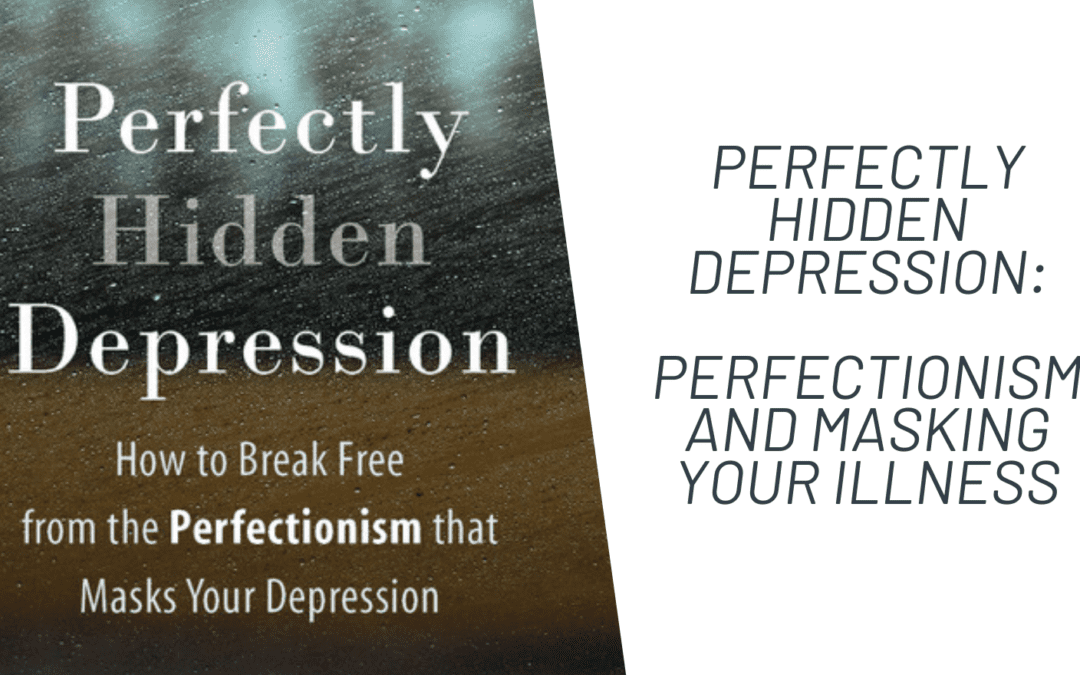Author: Dr. Margaret Rutherford
I’m honored to be asked to join you on March 18th, 2020 for a live video discussion of a syndrome I call “perfectly hidden depression.” I’ve written a new book, Perfectly Hidden Depression: How to Break Free from the Perfectionism that Masks Your Depression, where I stress that depression can wear many faces. One of those faces is being dangerously overlooked or even completely missed by the mental health profession – and that is when a “perfect-looking”, highly engaged and successful, energetic and quite busy person seeks help, only to be told they’re anxious or overwhelmed, or they need better self-care. Yet underneath, hidden by rigidly governed rules and a constant inner voice of shame and self-criticism, is a silent but potent depression. Tragically, we all know someone who died by suicide, yet who we’d seen not so long ago where they looked as if they had the world by the tail. And research backs this up, showing that reports of perfectionism are rising, while suicide rates are increasing at an alarming rate in all age groups except those 65 and older.
There are clues to that danger. For example, there’s an almost complete inability to express sadness, or fear, or any kind of emotional pain. Problems are discounted as “not as bad as everyone else’s,” and a pressured need to control, never disappoint and constantly live up to higher and higher expectations.
Anyone who identifies with perfectly hidden depression deeply fears anyone seeing their vulnerability, their fatigue, or their loneliness. So, they get stuck either knowing that they’re hiding, or the hiding has become so ingrained within them that it’s become second nature – until perhaps they see the words “perfectly hidden depression.” And light bulbs start coming on.
Jennifer Marshall, co-founder of the non-profit This Is My Brave, and a friend and colleague stated: “When I was first diagnosed with bipolar disorder, I was fearful of stigma and what might happen if other people knew I lived with a mental illness. I’d imagine the same fear exists with those who are suffering from perfectly hidden depression. The pressure to always look like we have it all together is thick within our society. When I was able to remove my mask of anonymity and reveal that I lived with bipolar, my world changed completely and not in a negative way. I was embraced with support and people from all over saying, “me too,” which was equally comforting and empowering.”
I couldn’t agree with Jennifer more. So, on the 18th, we’ll take one more step toward encouraging each other and those we care about to be honest with whatever emotional struggles we have. We’ll discuss the ten common traits of PHD, as well as what I’ve learned about perfectionism in my research and writing for the last six years. I’ll quote interviews with researchers but also the stories of those who volunteered (anonymously of course) to describe their perfectly-hidden lives. When I asked why they’d volunteered to talk with me, almost everyone explained, “Because I don’t want anyone else to live the life I’ve lived. It’s too lonely. It’s too easy to become distraught and despairing, all the while having to hide it. And it’s too easy to want it all to end.”
An interesting facet of PHD is also its potential similarity to a hypomanic episode of Bipolar II – which we’ll discuss. I’ll look forward to hearing from you about your experience with your own struggles with perfectionism or managing stigma, as we try to understand how perfectionism and depression are linked. The book itself has over 60 exercises and reflections to act as a guide and we’ll discuss the five major steps in discovering self-acceptance and an increased sense of openness and freedom.
The content of the International Bipolar Foundation blogs is for informational purposes only. The content is not intended to be a substitute for professional medical advice, diagnosis, or treatment. Always seek the advice of your physician and never disregard professional medical advice because of something you have read in any IBPF content.


